When Titan Web Agency works with dental practices, we almost always focus on acquiring new patients. We develop new dental marketing strategies, create PPC ads, and help our clients grow their practices and increase their profits.
Key Takeaways
- Dismiss patients only when you have a clear reason and a consistent process.
- Avoid abandonment. Do not dismiss a patient mid-procedure and use a formal notice period.
- Document issues, give a chance to correct behavior when appropriate, and set a deadline.
- Send a printed dismissal letter by mail (not text or email) and make records transfer straightforward.
While attracting new patients is essential, it's equally important to recognize when it’s necessary to cut ties with a dentist-patient relationship in your practice. It’s a process that can be emotionally fraught and tricky. So, with that in mind, we have created this guide to managing patient dismissals with grace – and at the end, we’ll provide you with a link to download a free sample patient dismissal letter template that you can customize for your practice.
Why Would a Dentist Dismiss a Patient?
Let’s begin by reviewing the reasons why a practice might dismiss a patient. In most cases, dismissal is not necessary. Dentists care about their patients and are often willing to go the extra mile to retain them and ensure that they receive the care they need to maintain healthy smiles.
There are circumstances when dismissal becomes necessary. A dentist has the right to dismiss any patient if there are differences that can’t be resolved or if the patient’s behavior is unacceptable.
Non-Payment of Fees
You may offer your patients payment plans, allowing them time to pay for expensive treatments, particularly if they are not insured. However, if a patient reneges on your agreement and your collection efforts are unsuccessful, you are under no obligation to retain them as a patient or to continue providing dental care.
Treatment Non-Adherence
A dentist-patient relationship is a two-way street. As a dentist, you agree to provide professional, compassionate dental care. In return, the patient agrees to adhere to your dental treatment recommendations. Consistent patient noncompliance with this can be grounds for patient dismissal.
No-Show Appointments
Your time is valuable. Any patient can have a problem keeping an appointment due to circumstances beyond their control, and that’s understandable. But a patient who consistently fails to show up for scheduled appointments is costing your practice time and money. One no-show may be excusable, but repeated no-shows necessitate dismissal of the patient.
Physical or Verbal Abuse
This one might seem obvious, but any patient who physically or verbally abuses you or your staff should not be welcome in your practice. People are allowed to get emotional, but someone who can’t control their behavior and puts you or your employees at risk cannot be allowed to return.
Discrimination
It’s a sad fact of life that discrimination and bigotry exist – but that doesn’t mean that you and your staff need to endure hatred or vitriol from your patients. If a patient has bigoted or racist beliefs and expresses them in your practice, you can and should dismiss them for the good of your practice, your employees, and your other patients.
Patient Lied on the Health History Form
Whenever you accept a new patient, you require them to complete a patient records health history form. The information on the form is necessary because it can impact the patient’s care, including the procedures you perform, the medications you prescribe, and other aspects of their treatment. If you discover that a patient lied to you, you may not be able to continue to care for them in good faith.

Patient Dismissal vs Patient Abandonment
Before discussing dismissal with a patient, we should clarify the differences between patient dismissal and patient abandonment.
Patient dismissal is a formal process where you notify a patient in writing that you can no longer provide dental treatment. The patient is typically given adequate notice, allowing them to find a new dentist. It is standard for any dentist who dismisses a patient to remain available for emergency care until the patient has a new dentist.
By contrast, a patient abandonment issue occurs when a dentist refuses to complete an ongoing dental procedure. We should note here that the keyword is ‘procedure’ and not ‘treatment plan.’ A patient may be dismissed with an incomplete treatment plan, provided they are not midway through a procedure. With abandonment, there is the potential for the dentist to be legally liable for consequences to the patient.
It's also worth noting that refusing to schedule a patient for additional appointments is not abandonment. If you have a patient who comes in for a routine cleaning and verbally abuses your dental office staff, you can accept payment and never schedule them for another cleaning again. A formal dismissal procedure is not necessary, and there would be no grounds for the patient to accuse you of abandonment charges.
We mention abandonment here because it is essential to understand the distinction. It can be tricky if you have a patient who comes in for the first part of a root canal and is abusive. You would face legal consequences if you refused to complete the procedure.
Best Practices for Dismissing a Patient from Your Dental Practice
As is the case with any formal proceeding, there are best practices to follow if you feel the need to dismiss a patient from your practice. Here are the steps to follow.
Check State-Specific Requirements
First, be aware of any state-specific requirements for patient discharge. Some states have rules that go beyond what we stated above; therefore, you must ensure compliance with these regulations to avoid being charged with patient abandonment.
Create a Patient Dismissal Policy for Your Practice
Every dental practice should have a documented patient dismissal policy that is clearly communicated and consistently taught to all staff members. Dismissal should not be undertaken haphazardly. You’ll need a written policy that outlines the process for warning patients if they are at risk of dismissal, allowing them to change their decision, and a procedure to notify patients if they have been dismissed.
It’s important to view your patient dismissal policy as a living document. You may put a policy in place and find that certain elements of it aren’t working the way you want them to. If that occurs, revise the policy to accommodate the changes and ensure your employees are aware of them.
Document Every Interaction with a Difficult Patient
One of the most common causes of patient dismissal is when a patient is difficult or abusive. Whenever a patient is argumentative or difficult, whether the difficulty stems from their attitude or refusal to pay, document the incident in writing and place the documentation in the patient’s file.
On a related note, please ensure that your staff notifies you of any difficult interactions. You don’t want to be surprised to learn about something that happened months ago. If you have a regular staff meeting, you may want to schedule some time to discuss such events to ensure you’re aware of them.
Beware of High-Risk Dismissal Situations
Some patients are riskier to dismiss than others. These include:
- Patients with acute or critical dental problems that require immediate treatment
- Anybody receiving specialized care that they won’t be able to find elsewhere
- People with HIV/AIDS
- People who are part of a government-protected class
You should also be careful about dismissing a good patient whose only issue is being financially delinquent. While we can certainly understand the frustration that comes with not being paid, it may make sense to involve a lawyer before dismissing a patient on financial grounds.
Give the Patient Time to Change
In many cases, it makes sense to engage with the patient and give them time to change the behavior that has led to the consideration of dismissal. This applies to things like no-show appointments and treatment non-compliance, but it does not and should not apply if a patient is verbally, physically, or sexually abusive to you or a member of your staff.
Any opportunity to change should come with a deadline. You don’t want to leave it open-ended because it may lead to unnecessary anger if you do need to dismiss a patient. Give them a set period to comply with your requests, and if they don’t, dismiss them.
Inform All Office Staff of the Dismissal
If you decide to terminate a patient, ensure that you notify everyone in the office of your decision. The last thing you want is for an unaware employee to answer the phone and book an appointment with someone you’ve dismissed.
Every member of your staff needs to be on the same page and aware of the situation. Here again, you may want to bring it up at a staff meeting. Another alternative would be to post a reminder behind the reception desk where your staff can see it.
Send a Dismissal Letter and Offer Copies of the Patient’s Records
Finally, ensure that you send a formal dismissal letter to the patient. It is crucial to send a printed letter through the mail. Never dismiss a patient using a text message or email, as doing so could result in a HIPAA violation and a hefty fine for your practice.
You should also offer copies of the patient’s records either to them or to a new dentist when they find one. You may also want to offer to discuss the patient's care with the new dentist, sharing any relevant information that will help them provide the necessary treatment.
How to Write a Patient Dismissal Letter
We’ve already discussed the importance of mailing a formal patient dismissal letter to the patient’s home address once you decide to dismiss them. Here are some pointers to help you write an effective and professional patient dismissal letter.
- Give a reason for the dismissal. You should clearly explain at the beginning of the letter that you are dismissing the patient from your practice and list the reasons for the dismissal. With some patients, you may not need to go into a lot of detail. But in some cases, it may be helpful to itemize the patient’s offenses and reiterate any warning you gave them that continuing their unacceptable behavior would result in termination.
- Outline any necessary or urgent treatment needs. As we noted above, it is not proper to dismiss a patient with an unfinished procedure, as that would be considered abandonment. However, an ongoing treatment plan may be left incomplete if the patient’s behavior necessitates dismissal. In your letter, be sure to outline any urgent treatment needs as a reminder to the patient to address them as soon as possible. You may also want to mention the ongoing need for cleanings as a way of maintaining good oral hygiene.
- Specify the effective date of the dismissal. Your dismissal letter should provide the patient with sufficient notice to allow them to find a new dentist to provide the care they need. The effective date of the dismissal should be clearly stated in the letter. For example, “I will be available to provide emergency care only for 30 days from the date of this letter.”
- Make yourself available for emergency care. It may take a patient who has been dismissed some time to find a new dentist in the area. For that reason, you should be prepared to offer continuity of care if it becomes necessary.
- Offer patients resources to find a new dentist. Finally, it’s a good practice to include some resources for any patient you are dismissing to find a new dentist. For example, you could link them to a local or state dental society, a managed care referral service, or suggest they ask for referrals from friends and family.
Your letter should be polite and professional. It is not appropriate to express anger even if the patient has treated you poorly. Outlining the reasons for dismissal and including any warnings you may have given will protect you in the event the patient tries to sue you.
Dismissing a Patient Doesn’t Need to Be Stressful
Most of your patients may be delightful, but it may be necessary to dismiss a patient on occasion. When the need arises, the pointers and best practices we have provided here can help you do it professionally and courteously.
Frequently Asked Questions
Why would a dentist dismiss a patient?
Dismissal is uncommon but may be necessary for persistent nonpayment, non-adherence to essential treatment, repeated no-shows, abusive behavior, discriminatory conduct, or falsifying health history. Practices should document thoroughly and communicate policies in advance.
Is non-payment a valid reason for dismissal?
Yes. When a patient fails to meet agreed financial obligations and reasonable collection efforts are unsuccessful, dismissal may be appropriate if consistent with written office policy and applicable laws.
Can treatment non-adherence justify dismissal?
Yes. The provider–patient relationship requires cooperation. Ongoing refusal to follow essential treatment recommendations, after counseling and documentation, can be grounds for dismissal.
Do repeated no-show appointments warrant dismissal?
Potentially. Chronic missed appointments disrupt care and operations. If policies are clearly communicated and documented and the behavior continues, dismissal may be warranted.
What about physical or verbal abuse?
Any threat, harassment, or abuse toward staff or clinicians is grounds for immediate dismissal to protect team safety.
Can discriminatory or hateful behavior lead to dismissal?
Yes. Practices may dismiss patients who engage in bigoted or harassing behavior toward staff or other patients, consistent with policy and law.
Is falsifying health history a reason to dismiss?
Yes. Intentional misinformation can compromise safety and care. Document the issue, notify the patient in writing, and provide appropriate notice and records transfer.
Tyson Downs is the founder of Titan Web Agency, a company specializing in marketing for dental professionals. With an impressive track record of working with over 100 dental practices, Tyson has a deep understanding of the unique marketing needs within the dental industry.











.png)
.png)





